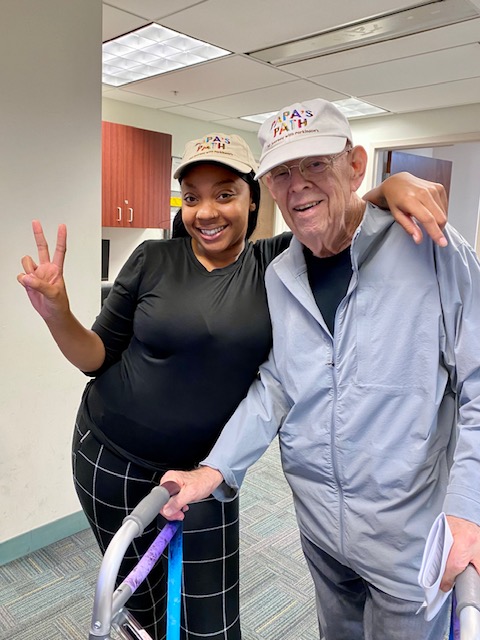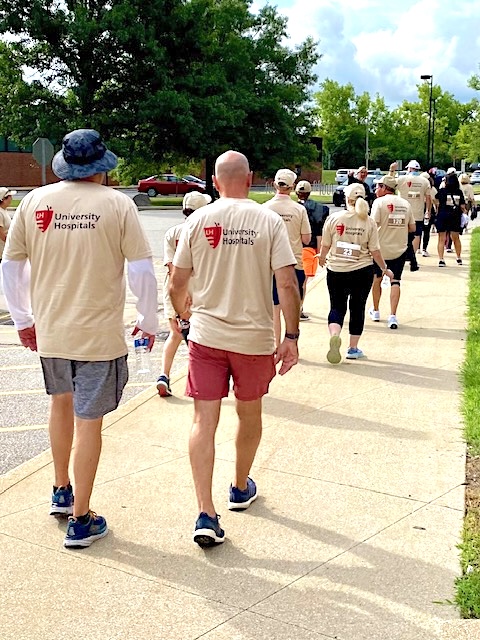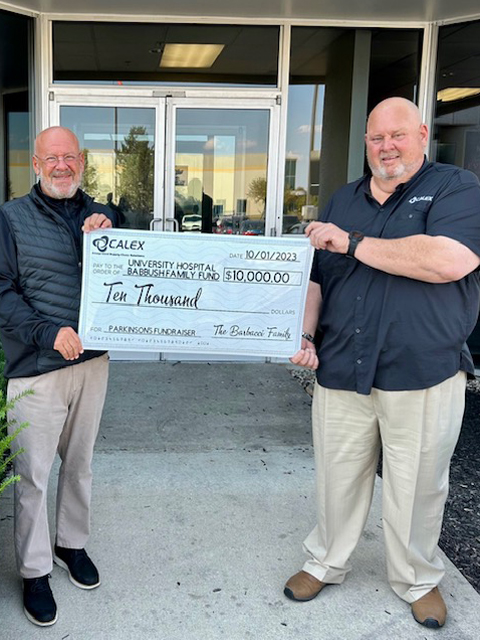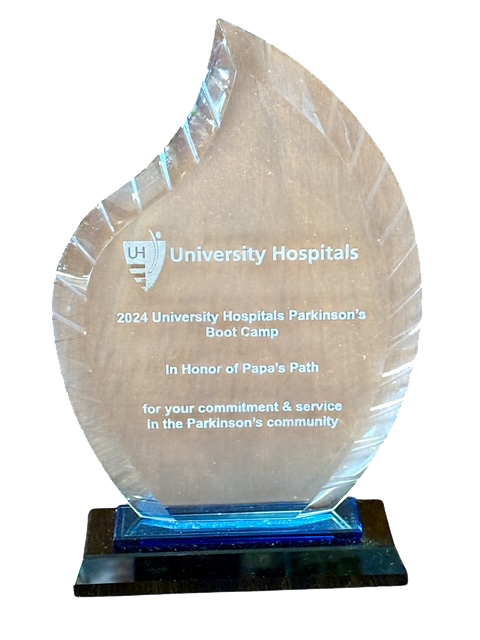A Caregiver Never Retires
The Parkinson’s Journey of Dr. Charles A. Babbush
More than half a century ago, maxillofacial surgeon Charles “Chuck” A. Babbush (Papa), DDS, MScD, helped popularize the use of dental implants. Drawing on new methods, Chuck implanted artificial teeth regularly in his practice, often in cases that would have been considered beyond repair.
If you ask Chuck, though, his job was to remind his patients of their worth and give them the confidence to smile again. He even wrote a book, “As Good as New,” encouraging patients to take charge of their dental health. Chuck’s writing also invited fellow caregivers to prioritize their patients’ feelings and experiences.
Soon, Chuck was confronted with his own medical challenge—one that is the worst fear of a surgeon like him. Initially, he dismissed the minor tremor in his right arm, but before his Parkinson’s disease became too obtrusive and patient safety came into play, Chuck made the decision to retire from the work he loved so much.
Chuck sought the patient-focused treatment he expected of himself as a caregiver. His initial appointments were positive. Chuck’s care team suggested he be evaluated for deep brain stimulation surgery.
As Chuck awaited an answer, his symptoms worsened significantly. His dyskinesia caused such nonstop movement that he quickly lost 50 pounds. The condition zapped Chuck’s energy. Mundane tasks, even sitting in a chair, left him in discomfort.
A seemingly final obstacle—being denied the surgery—would have derailed many, but not Chuck. Despite the setback, he remained hopeful.
As Chuck awaited an answer, his symptoms worsened significantly. His dyskinesia caused such nonstop movement that he quickly lost 50 pounds. The condition zapped Chuck’s energy. Mundane tasks, even sitting in a chair, left him in discomfort.
A seemingly final obstacle—being denied the surgery—would have derailed many, but not Chuck. Despite the setback, he remained hopeful.
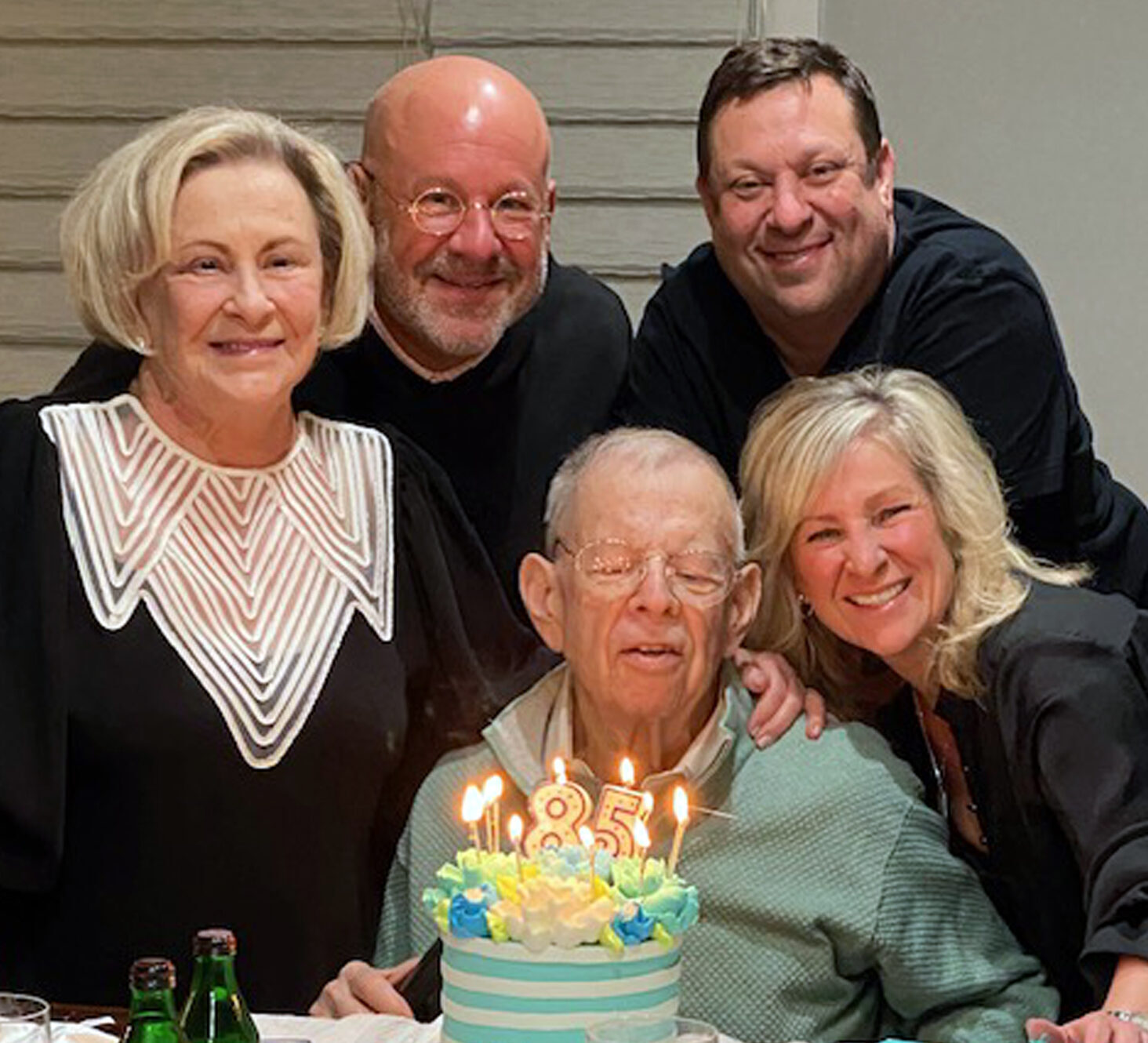
A Caregiver Never Retires
The Parkinson’s Journey of Dr. Charles A. Babbush
More than half a century ago, maxillofacial surgeon Charles “Chuck” A. Babbush (Papa), DDS, MScD, helped popularize the use of dental implants. Drawing on new methods, Chuck implanted artificial teeth regularly in his practice, often in cases that would have been considered beyond repair.
If you ask Chuck, though, his job was to remind his patients of their worth and give them the confidence to smile again. He even wrote a book, “As Good as New,” encouraging patients to take charge of their dental health. Chuck’s writing also invited fellow caregivers to prioritize their patients’ feelings and experiences.
Soon, Chuck was confronted with his own medical challenge—one that is the worst fear of a surgeon like him. Initially, he dismissed the minor tremor in his right arm, but before his Parkinson’s disease became too obtrusive and patient safety came into play, Chuck made the decision to retire from the work he loved so much.
Chuck sought the patient-focused treatment he expected of himself as a caregiver. His initial appointments were positive. Chuck’s care team suggested he be evaluated for deep brain stimulation surgery.
As Chuck awaited an answer, his symptoms worsened significantly. His dyskinesia caused such nonstop movement that he quickly lost 50 pounds. The condition zapped Chuck’s energy. Mundane tasks, even sitting in a chair, left him in discomfort.
A seemingly final obstacle—being denied the surgery—would have derailed many, but not Chuck. Despite the setback, he remained hopeful.

Soon, Chuck was confronted with his own medical challenge—one that is the worst fear of a surgeon like him. Initially, he dismissed the minor tremor in his right arm, but before his Parkinson’s disease became too obtrusive and patient safety came into play, Chuck made the decision to retire from the work he loved so much.
Chuck sought the patient-focused treatment he expected of himself as a caregiver. His initial appointments were positive. Chuck’s care team suggested he be evaluated for deep brain stimulation surgery.
As Chuck awaited an answer, his symptoms worsened significantly. His dyskinesia caused such nonstop movement that he quickly lost 50 pounds. The condition zapped Chuck’s energy. Mundane tasks, even sitting in a chair, left him in discomfort.
A seemingly final obstacle—being denied the surgery—would have derailed many, but not Chuck. Despite the setback, he remained hopeful.
As Chuck awaited an answer, his symptoms worsened significantly. His dyskinesia caused such nonstop movement that he quickly lost 50 pounds. The condition zapped Chuck’s energy. Mundane tasks, even sitting in a chair, left him in discomfort.
A seemingly final obstacle—being denied the surgery—would have derailed many, but not Chuck. Despite the setback, he remained hopeful.
At the urging of a family friend, Chuck sought a second opinion at University Hospitals in October 2022. Within just a few weeks, he was approved to undergo deep brain stimulation surgery.
Chuck credits the exceptional caregivers at UH — especially neurosurgeon Jennifer Sweet, MD, and neurologist Aasef Shaikh, MD, PhD, Vice Chair of Research in the Department of Neurology at UH Cleveland Medical Center — for playing critical roles in his path to recovery. Both are nationally recognized leaders in their fields, deeply experienced in the latest procedures and treatments for Parkinson’s.
Not all hospital systems dedicate significant resources to Parkinson’s care, Chuck notes. “UH has really gone out on a limb to do something for us,” he said. What stood out most to Chuck was the humanity of the team: “The people at UH are so good and so caring. They understand that a doctor influences a patient’s psyche from the moment they meet.”
While University Hospitals provided the expert, compassionate medical care Chuck needed, he credits his family with helping him through the hardest moments of his journey. The role of a caregiver is more profound than most people realize — you simply can’t face Parkinson’s alone. The entire Babbush family has embraced Chuck’s vision to raise awareness and build a strong, loving community of support. As that vision continues to grow, the journey becomes a little less lonely — for everyone walking it.


